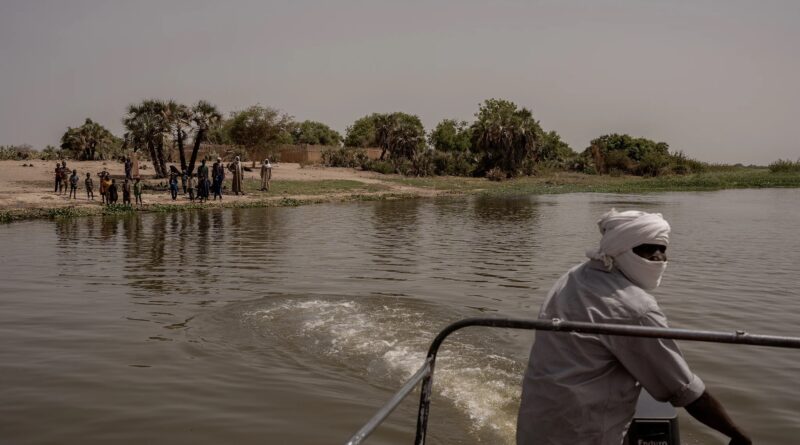Climate Change Driving Extremism
The atrocities the world has witnessed in recent weeks have been truly unfathomable. People violently removed from their homes, brutally murdered, and taken hostage. It is hard to turn away, which is the exact goal of extremists. They want to strike terror in people and force them into a state of fear.
Violent extremism is defined as “encouraging, condoning, justifying, or supporting the commission of a violent act to achieve political, ideological, religious, social, or economic goals.” Most commonly, violent extremism is wielded to advance political or ideological agendas, with motivations ranging from undermining existing governments, removing leaders from power, to implementing Sharia law.
However, another catalyst is on the rise: Climate change. Climate change is not just an environmental crisis; it is a threat multiplier, exacerbating existing social, economic, and political vulnerabilities. As resources become limited, communities are displaced, and traditional ways of life are disrupted, the stage is set for a dangerous cocktail of discontent and desperation.
Extremist ideologies provide a sense of identity, purpose, and belonging. These ideologies exploit existing fault lines and offer a seemingly attractive path for those who feel marginalized or dispossessed due to climate-related challenges.
Consider regions already grappling with the impacts of climate change, such as parts of Sub-Saharan Africa, the Middle East, and South Asia. Changing weather patterns contribute to droughts and crop failures, directly affecting livelihoods and forcing people into extreme poverty. When people are unable to feed their families or sustain their traditional way of life, they become susceptible to recruitment by extremist groups, offering alternative solutions or an outlet for their grievances.
The intricate connection between climate change and violent extremism is not a mere coincidence, but rather a complex interplay of environmental stressors and socio-political vulnerabilities. While not every community grappling with the impacts of climate change succumbs to extremism, the risks are markedly higher in environments where existing vulnerabilities are compounded by the challenges posed by climate-related disruptions such as water scarcity and climate-induced droughts.
The climate-related security risks are not to be underestimated, and countries must recognize that addressing climate change is not solely an environmental concern but a crucial component of global security.
Investing in climate adaptation programs is an urgent necessity, and requires ensuring access to clean water, securing food sources, and implementing sustainable agricultural practices. By doing so, there is the opportunity to reduce the susceptibility of communities to the influence of extremist ideologies in the face of environmental stressors.
International collaboration is paramount. Nations must unite to share knowledge, resources, and strategies to effectively tackle the dual challenges of climate change and extremism. Early warning systems, disaster preparedness, and conflict prevention mechanisms should all incorporate climate considerations to identify regions at risk and address potential threats proactively. As the world stands at the precipice of unprecedented environmental changes, it is imperative that global leaders gather to reaffirm their commitment to climate collaboration. The upcoming Conference of the Parties (COP28) in Dubai provides a pivotal opportunity for nations to come together and pledge collective action towards mitigating the impacts of climate change.
The dual challenges presented by climate change and violent extremism, the world cannot afford to remain passive. Both challenges transcend borders, ideologies, and political affiliations. The time to prioritize investments in climate adaptation has arrived, not only as an act of environmental stewardship, but as a crucial step in safeguarding the stability, prosperity, and safety of our global community. A commitment by world leaders to collaboration at COP28 in Dubai has the opportunity to be a defining moment in our collective efforts to address these pressing issues.
Originally written for and published on RealClear Energy

